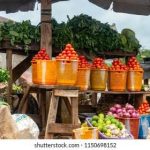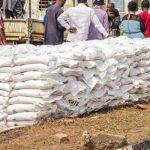Nigeria’s fish industry, valued at N120.043 billion by the National Bureau of Statistics (NBS), is grappling with a sharp increase in feed prices, severely affecting small and medium-sized players. Feed prices have doubled within a year, with a 15kg bag of fish feed rising from N18,000 in 2023 to N36,000 in 2024 in Lagos. In the Niger Delta, prices are even higher.
Samson Feyisetan, CEO of SAFSON Farm, has shut down over ten ponds in two years due to the soaring costs. He now buys significantly fewer fish and struggles to feed them. Many farmers are abandoning fish farming, unable to afford the high feed prices driven by the rising costs of maize and soybeans, essential feed ingredients.
Nigeria is Africa’s third-largest fish producer, with 1,169,478 metric tons annually, primarily from artisanal fishers. However, the fish farming sector is in peril. The high prices of raw materials have led to many farmers leaving the business, reducing the local sourcing of feed materials. Maize prices, for instance, have doubled in a year, selling for N600,000 to N1 million per metric tonne.
Food inflation in Nigeria reached 40.66% in May 2024, further exacerbating the crisis. Farmers like Opeyemi Adeniyi of Courage Farms and Agro have resorted to alternative feeds, such as boiled chicken, due to the high feed prices.
The National Agricultural Sample Census Report by the NBS highlights that only 5% of agricultural households in Nigeria engage in fish farming, with major constraints including low financial capability, poor access to credit, and insufficient infrastructure.
Professor Francisca George of the Federal University of Agriculture, Abeokuta, acknowledges the capital-intensive nature of aquaculture but emphasizes its profitability. Despite high feed costs, she highlights the good conversion rates of fish diets, which contain large quantities of protein.
Esther Feyisetan, CEO of Feyi Smoked Catfish, notes that insecurity has forced many farmers to abandon their farms, further affecting the supply of ingredients needed for fish feed production.





